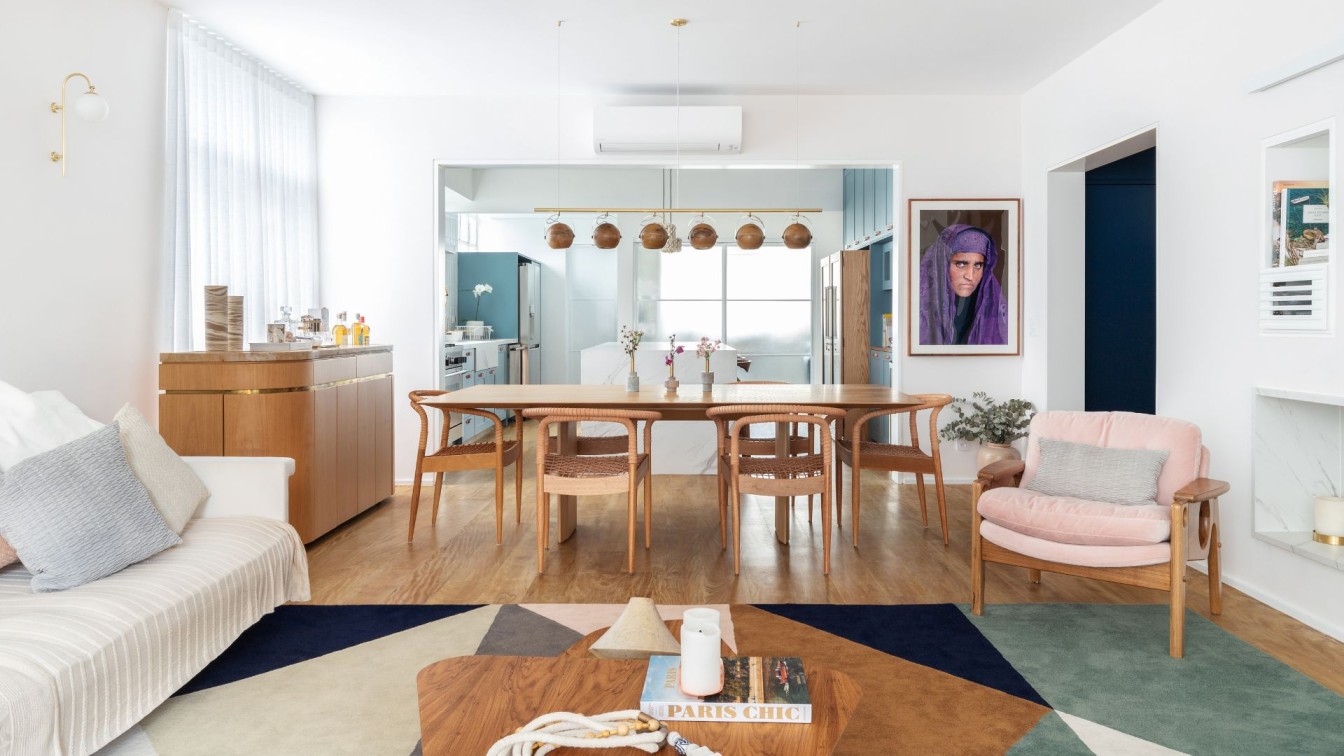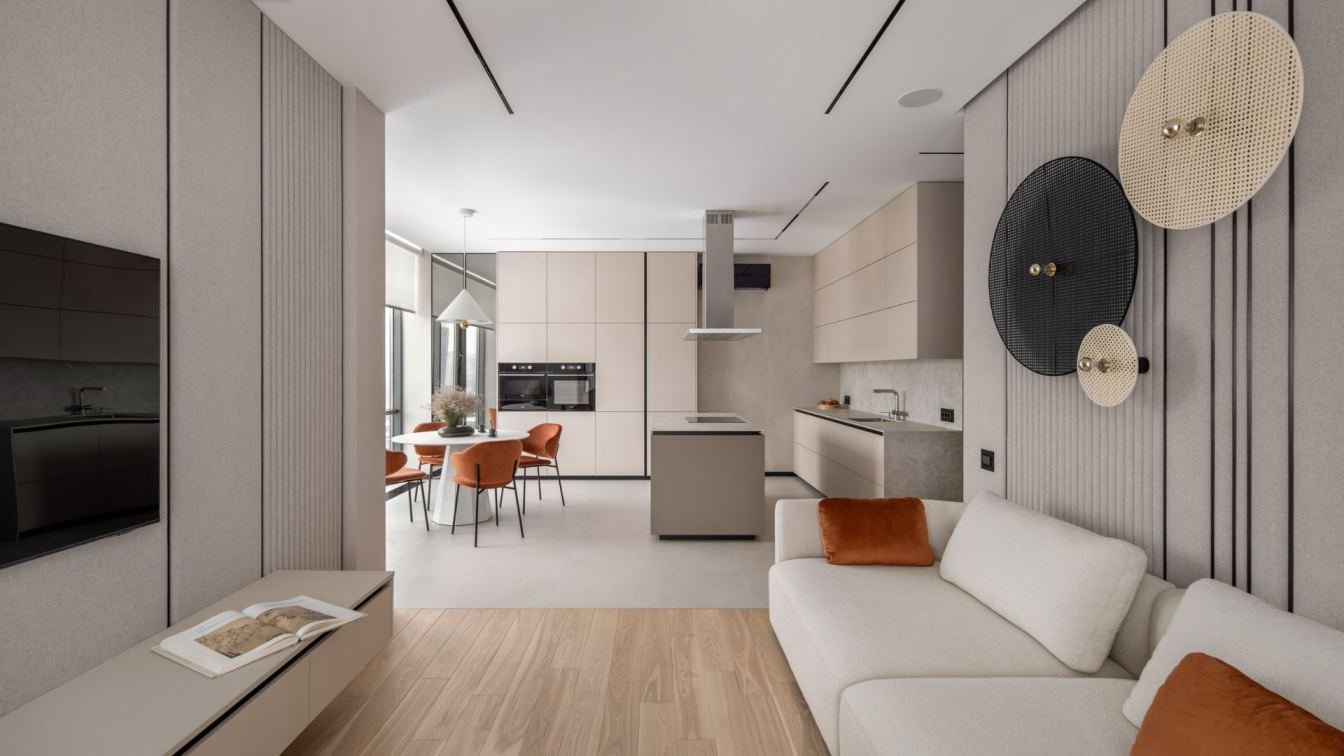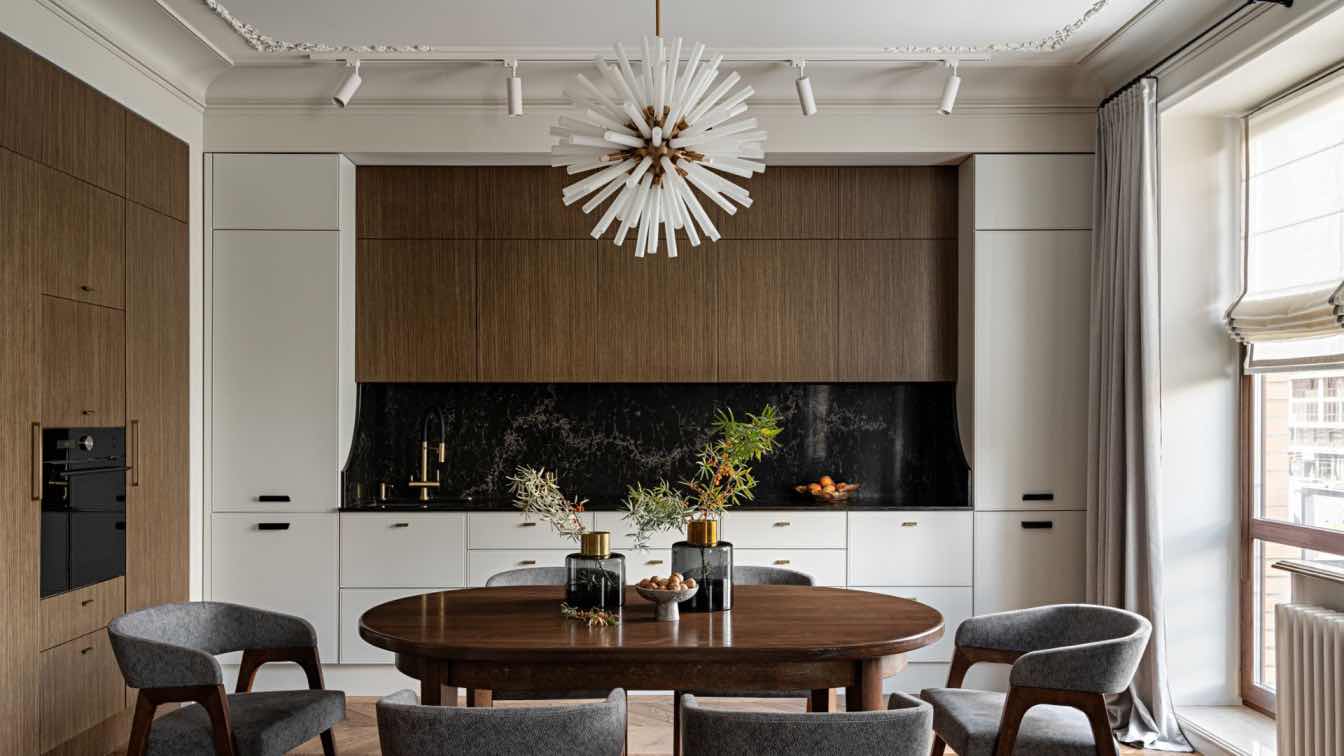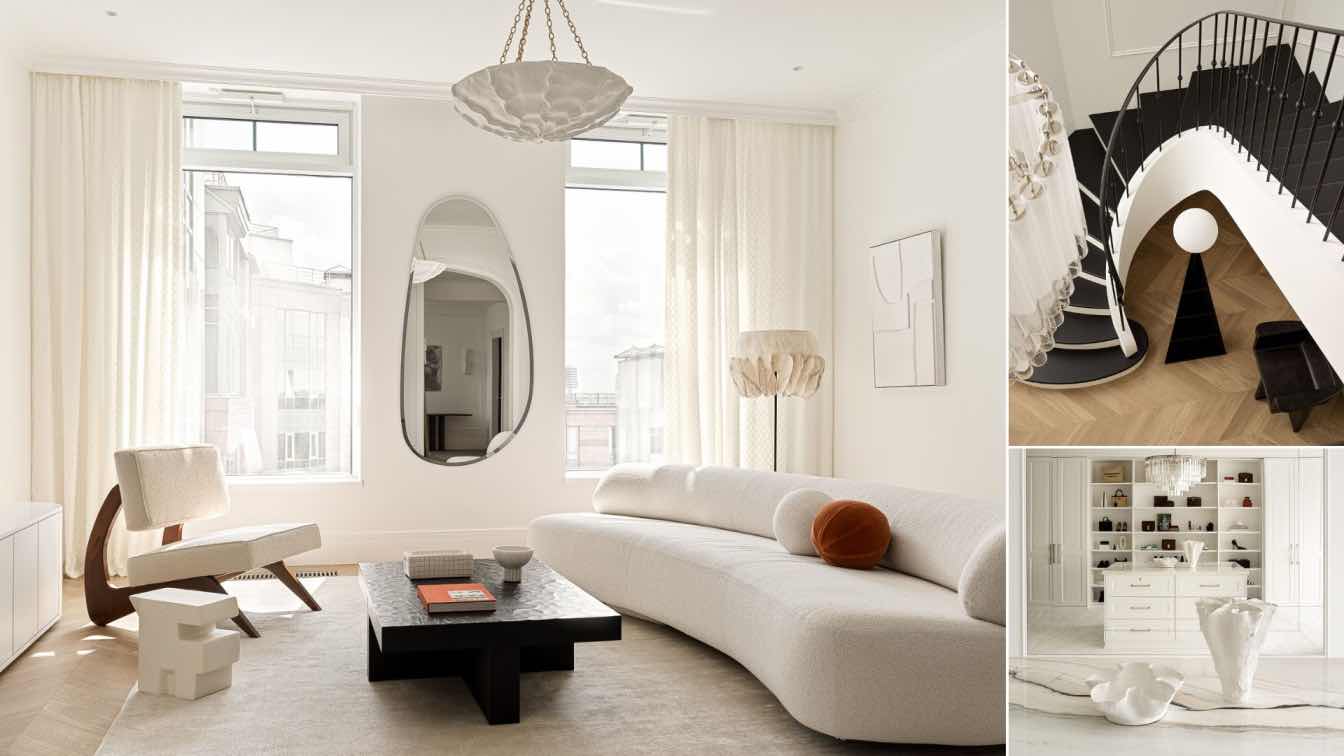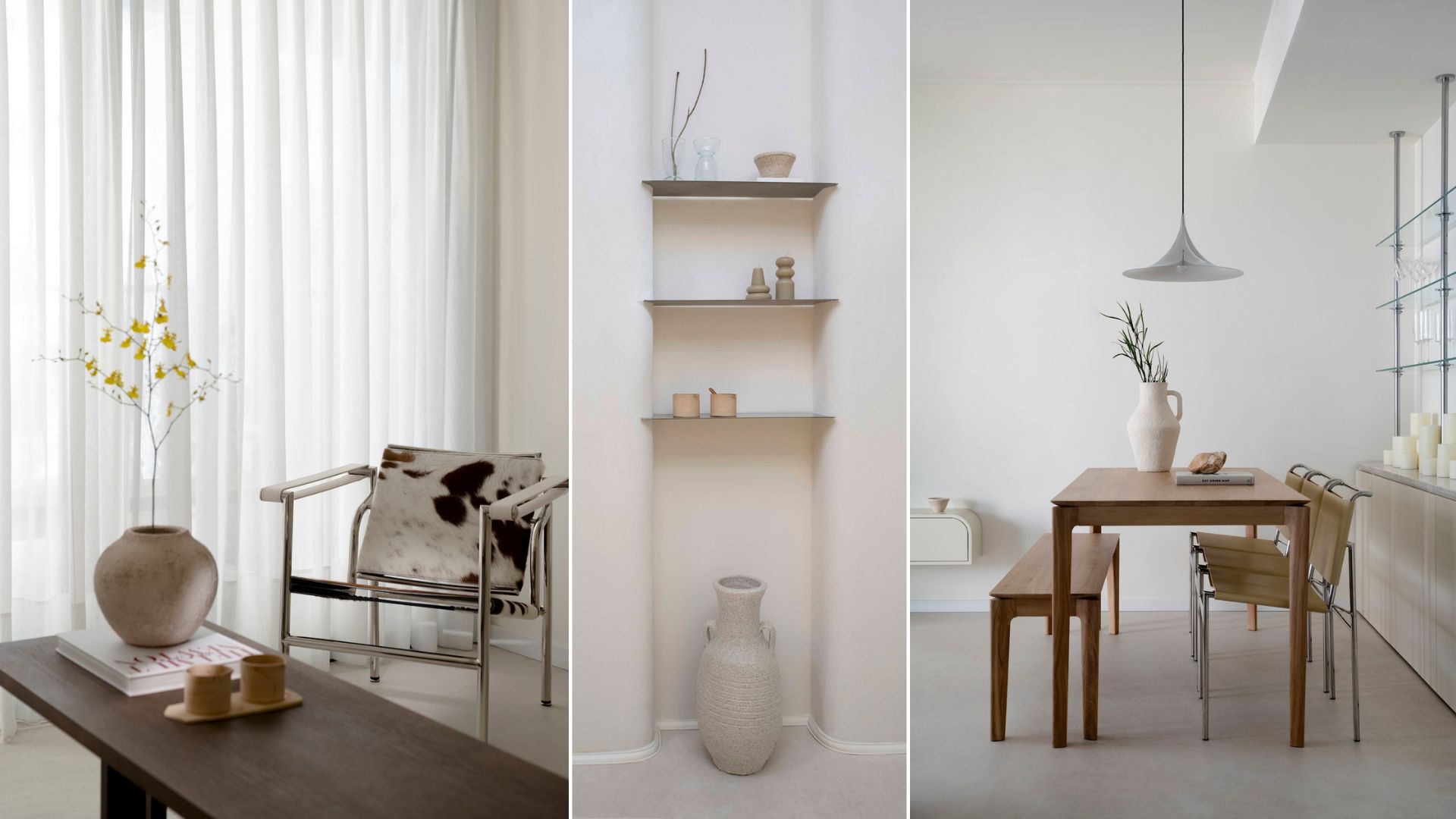With an original floor plan from the 1970s, Flávia's apartment is located in the Jardim Paulista neighborhood of São Paulo and is 160 m². Outdated for contemporary living, the property had a generous laundry area, larger than the kitchen, and a segmented floor plan. When she approached Iná Arquitetura, Karen Evangelisti and Marcos Mendes, one of the resident's biggest wishes was for the kitchen to be the center of the apartment, as she loves to cook and host parties.
The program therefore called for a large, pleasant, social kitchen connected to the living area. The service area was reduced to the minimum size necessary, with space for cupboards, a worktop, a washing machine and a small toilet, and everything else was transformed into a kitchen. The space was equipped with a generous worktop, an island with stools, space for handling food, cupboards and a wine cellar. Connected in sequence, the multi-purpose room has dining, living, TV, fireplace and is surrounded by works of art. As a collector of photographs, one of the resident's wishes was to have a gallery at home to display her passion.
The private exhibition begins at the entrance, in a dark blue hall, and extends throughout the apartment. In the hallway leading to the bedrooms, a boiserie in burnt pink tones forms a backdrop for the black and white photographs. "I think the conversation between architecture, interiors and design worked very well because it created this unity and personality that is the face of the apartment. Flávia's collection of works of art and furniture certainly contributed a lot to the outcome of the project. This curatorship deserves to be highlighted," says Karen.
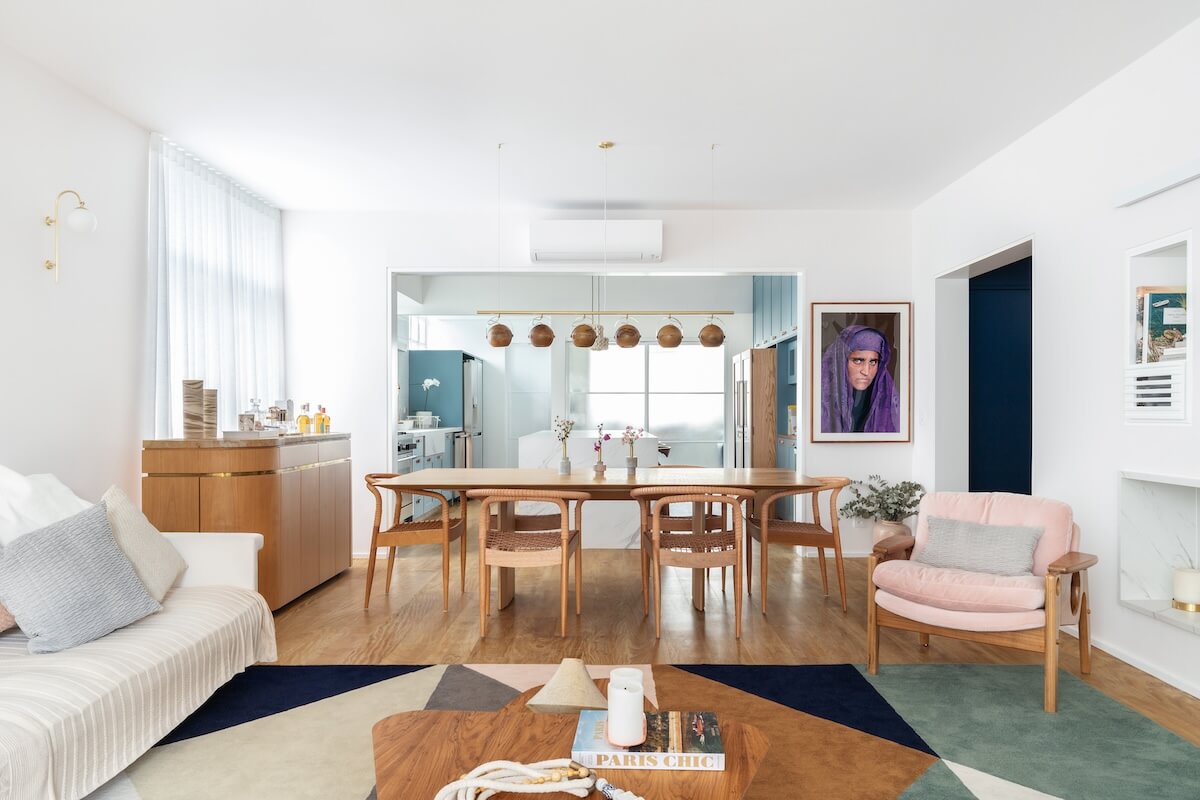
In the intimate area, two old bedrooms were transformed into the master bedroom, which includes an open closet and bed space. The bathrooms were also rethought and the suite gained a bathroom with a bathtub and generous shower space. A third old bedroom has been turned into an office with a guest bathroom, which can also accommodate guests. The woodwork adds charm and contrast to the light tones in the rooms. On the floor, demolition floorboards make up almost the entire apartment, with the exception of the bathrooms and laundry area.
In the kitchen, the wooden flooring reinforces the idea of continuity, without marking the transition between spaces. For the decoration, the choice of neutral colors helped to highlight the details. In both the elevator hall and the arrival hall, the dark blue gives the poetic atmosphere required by the works of art, in contrast to the light tones in the rest of the apartment. The kitchen has white as a backdrop, as well as wooden floors and bluish joinery. A light pink corridor leads to the living area, with bedrooms that follow the same language of light tones and predominant woodwork.
Finally, gold is present in light fittings, handles and metal accessories, used to enhance details in the apartment. "As the client is very fond of art and design, we chose pieces based on the space available, but also taking into account her desire to have signature pieces - among them, the Tete Armchair and the Mocho Stool, by Sérgio Rodrigues, and the Sideboard, by Fernando Jaeger. This created an atmosphere that is very much Flávia's own, but also very much Goiva's own," Marcos concludes.




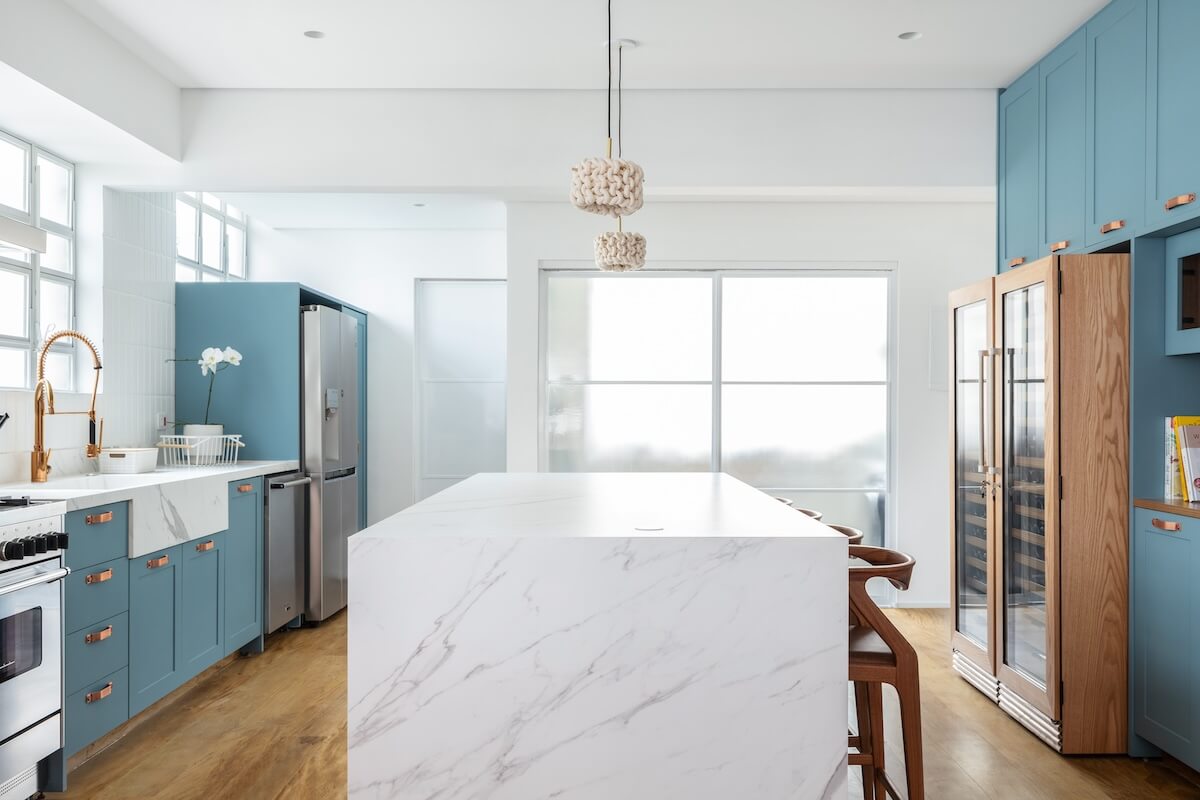







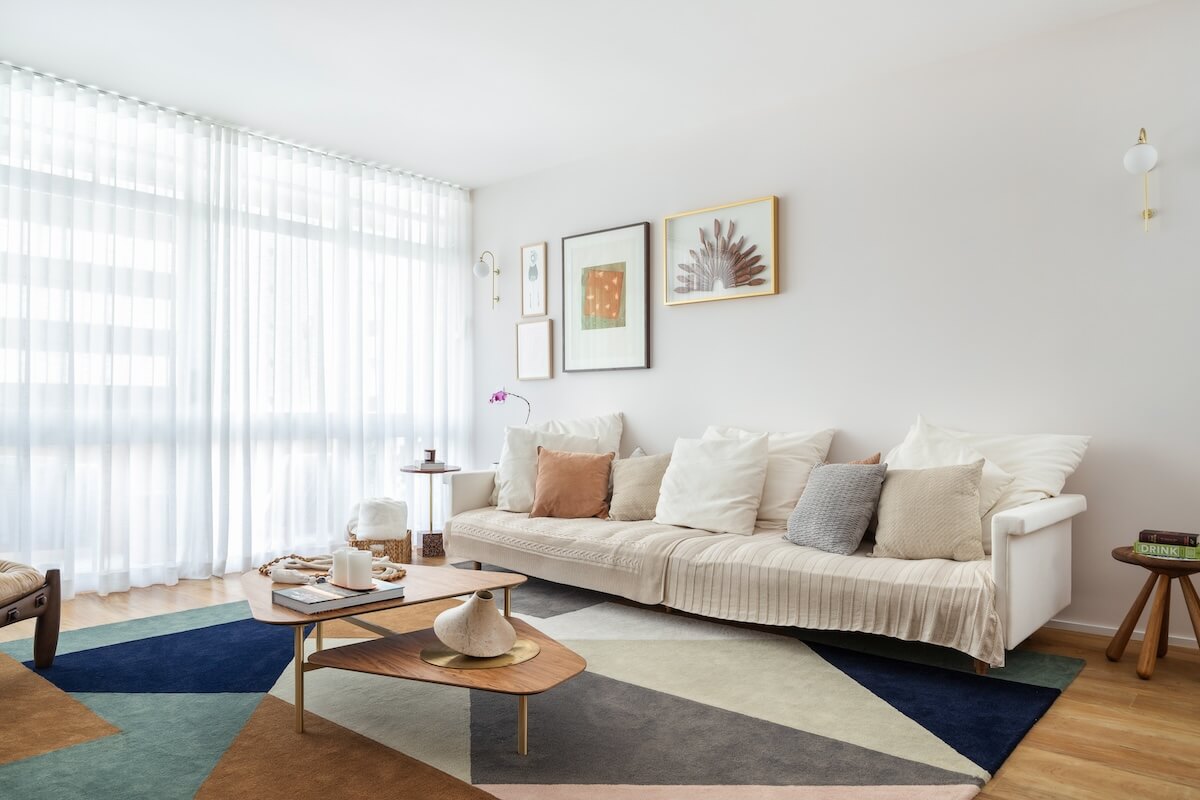




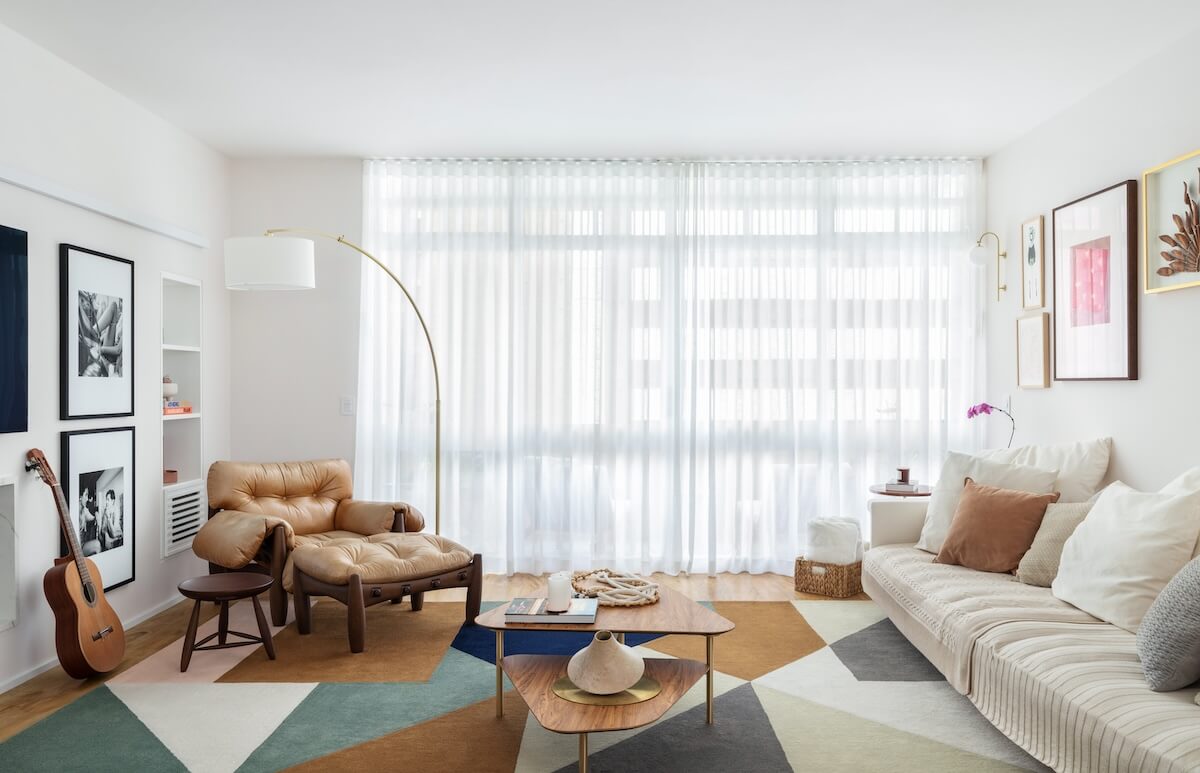












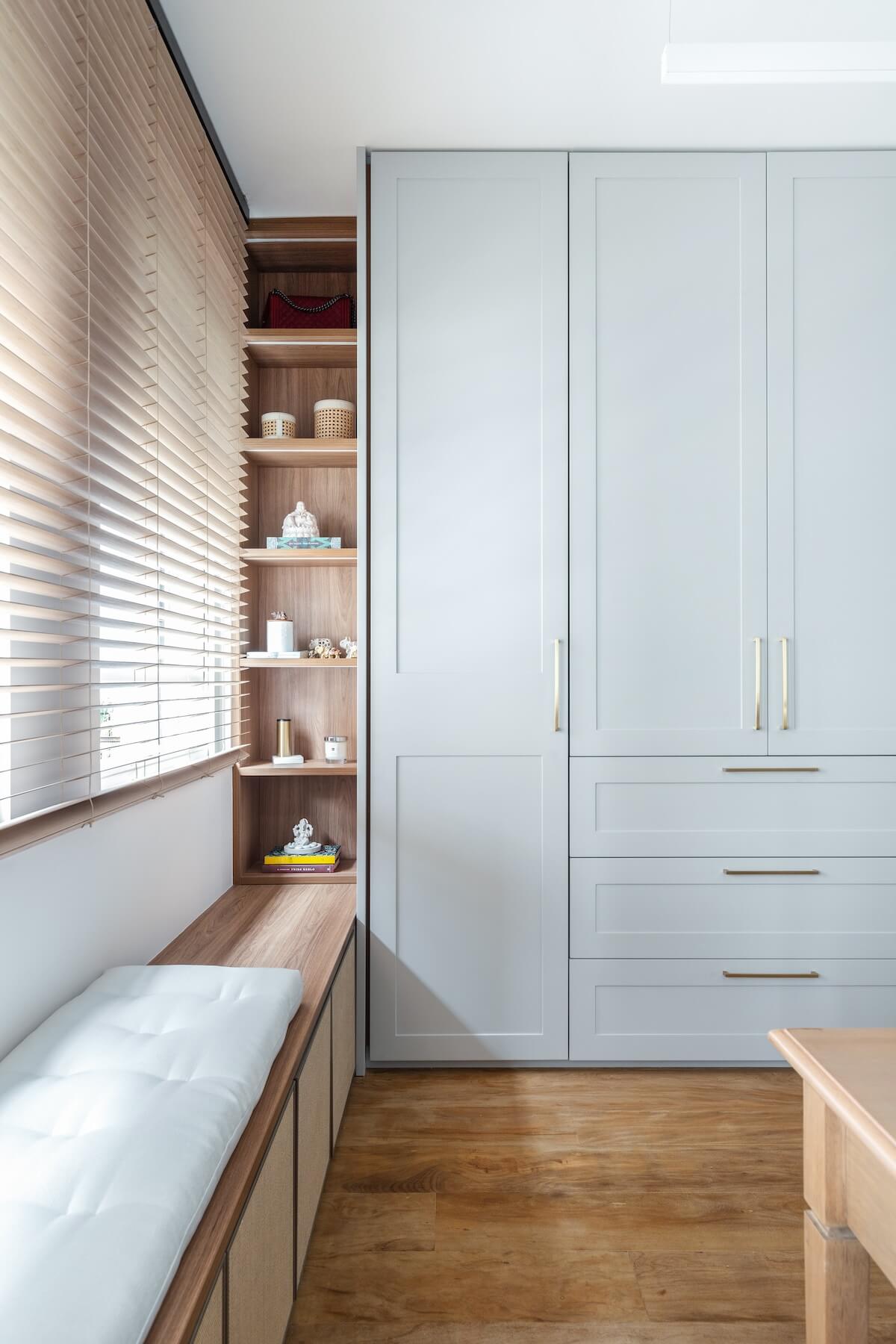








About the Goiva
The gouge is an object used in woodcut to give precision to the curves of the strokes. It is what shapes the creation, giving form to different stories. Similarly, the Goiva office bases its work on the protagonism of creation. In each project, the focus is on highlighting the journey through architecture in a poetic way, showing that creation becomes conception - in other words, it's a living thing that starts from an idea. At the end of each work, they seek to manifest the results of creation, processes and the poetic involvement of architecture. Led by architects and partners Karen Evangelisti and Marcos Mendes, architecture is seen as the exercise of sculpting spaces and ideas, materializing and executing unique projects that meet the unusual.
About Karen Evangelisti
An architect who graduated in 2014 from FAU-USJT, she was awarded 1st place in the Ópera Prima competition for her thesis and has participated as a guest on academic boards at the main universities in São Paulo. She was a partner and architect at Iná Arquitetura for 7 years, working in the creative direction and development of more than 100 projects and works. In 2023, together with Marcos Mendes, she founded Goiva.
About Marcos Mendes
An architect who graduated from Mackenzie in 2008, he was invited the following year to work at LVPH Architectes in Switzerland, where he stayed for three years and won 1st place in a competition in Geneva. Back in Brazil, he founded Iná Arquitetura and remained a partner and architect for 11 years, signing 170 projects and building the vast majority of them. In 2023, together with Karen Evangelisti, he founded Goiva.

